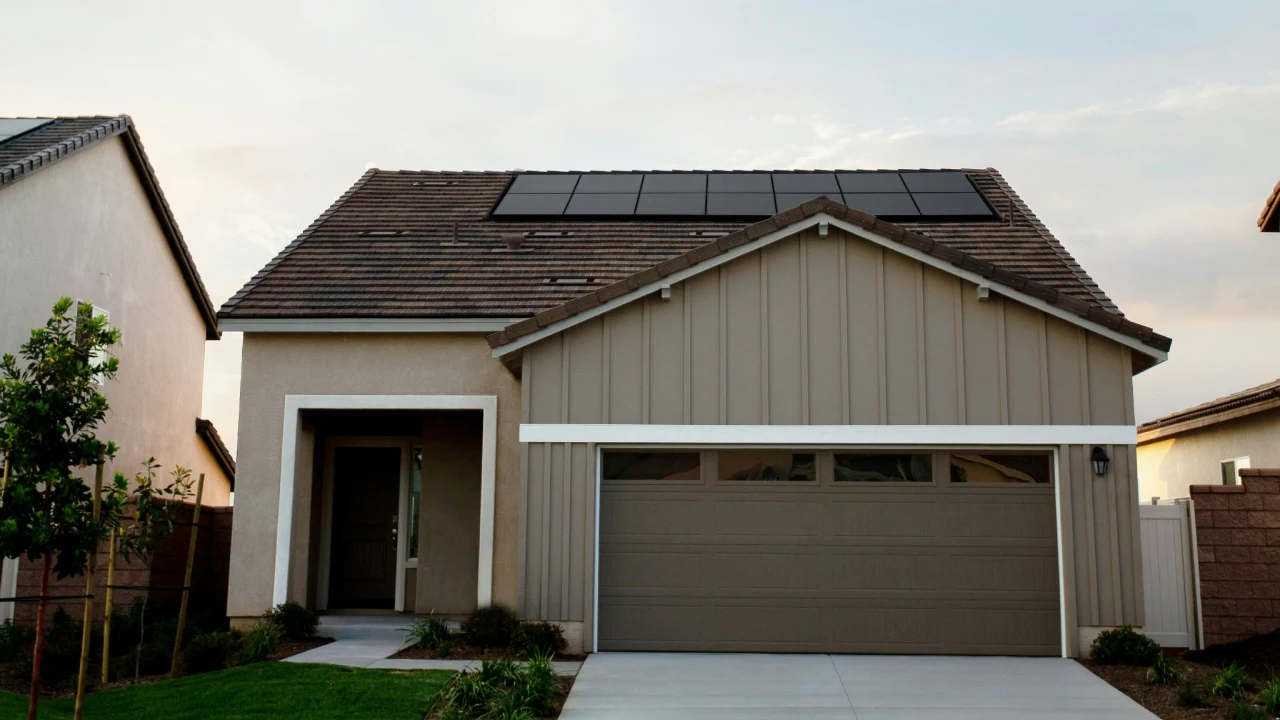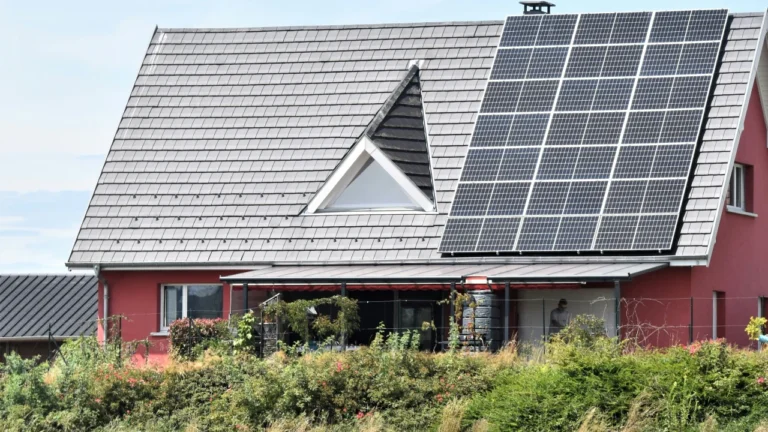Are solar panels worth getting in 2024?
Switching to solar power is a big decision, and it’s natural to wonder if solar panels are truly worth the investment. Many homeowners ask, “Are solar panels really worth getting?” In this article, we’ll dive deep into everything you need to know about the benefits, costs, and long-term value of solar panels. By the end, you’ll have a clearer idea of whether solar panels are the right choice for your home. Sounds good? Let’s get started.
What Are the Financial Benefits of Installing Solar Panels?
One of the main reasons people consider solar panels is to save money on their electricity bills. With energy costs rising, finding ways to lower monthly expenses has become more appealing. Solar panels allow you to generate your own electricity, which means you rely less on the traditional power grid. This reduction can lead to significant savings, especially if you have high energy consumption or live in an area with high electricity rates.
Over time, the savings can really add up. Depending on the size of your system and how much sunlight you get, you could save hundreds or even thousands of dollars each year. Many homeowners see a return on investment within five to ten years, and since solar panels often have a lifespan of 25 years or more, the long-term benefits can be substantial. Plus, some states offer incentives, tax credits, or rebates that make the initial cost more affordable. It’s worth looking into what’s available in your area to help offset the upfront costs.
How Do Solar Panels Increase the Value of Your Home?
Did you know that installing solar panels can increase your property’s value? Many studies show that homes with solar energy systems sell for more than those without. This makes sense—solar panels are an attractive feature for potential buyers who are looking for energy-efficient homes that will save them money in the long run. If you plan on selling your home in the future, having solar panels installed can give you an edge in the real estate market.
Buyers are often willing to pay more for a home that already has a solar energy system in place, especially if it’s a high-quality installation with a warranty. This added value can help you recoup some of the initial costs of the panels when you sell. Even if you don’t plan to move anytime soon, knowing that your investment can increase your home’s worth can make the decision easier.
Are There Environmental Benefits to Using Solar Energy?
If you’re looking to make a positive impact on the environment, solar panels are a great option. By switching to solar energy, you reduce your reliance on fossil fuels and lower your carbon footprint. Solar panels generate clean, renewable energy by harnessing sunlight, which means you’re contributing to a healthier planet. Sounds good, right?
Solar energy doesn’t produce harmful emissions, making it one of the greenest options available. For many, the environmental benefits are a significant factor in deciding to go solar. Knowing that you’re doing your part to create a more sustainable future can be a strong motivator. And as technology continues to advance, solar panels are becoming even more efficient, allowing you to maximize the environmental benefits.
How Much Does It Cost to Install Solar Panels?
Cost is often a big concern for homeowners considering solar panels. While the initial investment can seem steep, it’s important to remember that you’re not just paying for panels—you’re investing in long-term savings. The exact cost of installation can vary depending on several factors, such as the size of your home, the quality of the panels, and your energy needs.
On average, the price for a solar panel system can range from $10,000 to $30,000 before any incentives or rebates. It might sound like a lot, but remember that many companies offer financing options, making it more manageable to pay over time. Additionally, the savings you’ll get from reduced electricity bills and potential tax incentives can significantly lower the overall cost. In many cases, homeowners find that the monthly payment for their solar loan is less than their average utility bill, allowing them to save money from day one.
How Long Do Solar Panels Last?
When investing in solar panels, one of the most common questions is, “How long do they last?” Most solar panels come with warranties that cover 25 years or more, which is a great indicator of their durability. These panels are built to withstand various weather conditions, including rain, snow, and even hail. So, once they’re installed, you can expect them to generate electricity for decades.
While solar panels are designed to be low-maintenance, occasional cleaning and inspections can help keep them in optimal condition. Some companies also offer monitoring services, allowing you to track your system’s performance and catch any issues early. With proper care, solar panels can continue producing electricity well beyond the warranty period, providing clean energy for years to come.
What About Maintenance and Repairs?
Another concern homeowners have is the maintenance and repair of solar panels. Fortunately, solar systems are relatively low-maintenance compared to other home investments. Once installed, they don’t require much upkeep. Occasionally, you might need to clean the panels if they get dirty or dusty, especially if you live in an area with little rain.
If any issues do arise, such as a damaged panel or inverter, most companies offer warranties that cover repairs. It’s essential to choose a reliable installer who provides a solid warranty, as this can save you money on unexpected maintenance costs. Some companies also offer maintenance packages to give you peace of mind, allowing you to enjoy the benefits of solar energy without the hassle.
Are Solar Panels Worth It in Cloudy or Cold Climates?
A common misconception is that solar panels only work well in sunny, warm climates. However, solar technology has come a long way, and panels can generate electricity even on cloudy days. While they are most efficient with direct sunlight, they still produce power in lower light conditions. In fact, cooler temperatures can make panels more efficient, as extreme heat can slightly reduce their performance.
If you live in an area with varying weather, like Glen Burnie, it’s still possible to benefit from solar energy. Many companies use high-quality panels designed to capture as much light as possible, even in less-than-ideal conditions. Additionally, if your system produces more electricity than you need, you can often sell the excess back to the grid or store it for later use with a battery system.
What Are the Long-Term Benefits of Going Solar?
Going solar is about more than just short-term savings; it’s a long-term investment in your financial and environmental future. With utility rates constantly increasing, locking in your energy costs with solar can provide stability and predictability for years to come. You’ll no longer be subject to the ups and downs of electricity prices, which can offer a sense of financial security.
Additionally, the longer you have solar panels, the more you save. The initial investment may be a barrier, but once you hit the payback period—typically around five to ten years—you’ll start seeing a return. From that point on, you’re essentially getting free electricity for the remaining lifespan of your panels, which can be 20 years or more. Sounds good?
Is Solar Power a Good Fit for Your Home?
Deciding whether solar panels are worth it ultimately comes down to your specific situation. Do you have a roof that gets plenty of sunlight? Are you planning to stay in your home for several years? Do you want to reduce your energy bills and your carbon footprint? If you answered yes to these questions, then solar power is likely a great fit for you.
However, every home is different, and it’s crucial to get a professional assessment to determine if your property is suitable for solar. Many companies offer free consultations to help you understand what’s possible and what kind of system would work best for your needs. They can answer any additional questions you might have and provide a customized quote.


